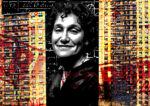Philadelphia’s community development organization is trying a different tactic to keep tenants and landlords satisfied without leaning on housing vouchers.
The Philadelphia Housing Development Corporation is running a small pilot program that puts cash directly in the hands of tenants, NPR reported. The program is being watched closely by the U.S. Department of Housing and Urban Development to see if it’s worth bringing to a larger population.
The program is simple. The PHDC picked 300 tenants on the city’s waitlist for housing vouchers and offered to subsidize the rents of hundreds of individuals for 30 months; the only requirement is that the households earn no more than 50 percent of the area median income and have a child under 15 years old.
Renters pay 30 percent of their income toward housing, similar to many vouchers. The rest comes courtesy of the PHDC in the form of a preloaded debit card, though recipients can use it to pay for other things.
The program is funded through both public money and philanthropy.
Philadelphia nearly launched this program several years ago, only to be upended by the pandemic.
The idea behind the program is to sidestep the use of housing vouchers. While it’s illegal to discriminate against housing voucher holders in Philadelphia, enforcing that law has proven difficult across the nation and disproportionately affected Black and Hispanic communities.
In Philadelphia, the rejection rate for voucher holders was 67 percent, according to a 2018 study by the Urban Institute. Avoiding the use of vouchers — while still subsidizing rents — could help renters avoid discrimination and erase some of the stigma they carry.
HUD itself carried out several pilot programs in the 1970s that gave cash directly to renters. It largely abandoned that midway through the decade, however, when it created the voucher program.
Read more



HUD said if the evidence accumulates, it will approach Congress about a more broad program, which it would seek to run.
A key difference between the assistance provided by Philadelphia in the small pilot program and the federal voucher program is that the latter is required to pay landlords directly. Another distinction relevant to the people in the pilot is that the money will run out for them after two and a half years, while federal housing vouchers don’t expire.
The lack of oversight also means no mandatory inspections for landlords, so tenants may be shacking up in shabbier units.
